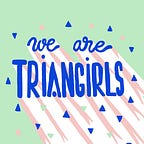Introducing Abadesi Osunsade: Founder of Hustle Crew, NonTechTech. Head of Maker Outreach at Product Hunt and Co-Host Techish podcast
Abadesi will be joining us as a panellist for our Top Of Her Game discussion.
A little about Abadesi
Born in Washington DC to Nigerian and Filipina parents, Abadesi spent her childhood in East Africa before moving to the UK for secondary school. She graduated from the London School of Economics in 2009 and wrote for the Financial Times before joining London’s tech scene. Prior to her current roles she worked in growth roles at Amazon, HotelTonight and Groupon where she was promoted after her first 8 months and helped scale her department 5X leading up to their record breaking IPO. In 2016 she published her careers advice book, Dream Big Hustle Hard: A Millennial Woman’s Guide to Success in Tech. The Hustle Crew community she leads has helped thousands of underrepresented young professionals further their careers in tech.
We’d love to hear about your accomplishments. What are you most proud of?
Hard to pick just one. I’m proud of the book I published on Amazon, I’m always happy when readers tell me it helped them land their dream job. I’m proud of Hustle Crew — it started as an idea in my head and with no outside funding has become a globally recognised brand promoting greater inclusion in tech.
I’m really proud of the fact that I’m still working in tech after eight years, and that I haven’t left the industry. I’ve met so many wonderful people: sources of inspiration, support, motivation and friendship. I’ve also met lots of nasty people, full of micro-aggressions and discriminatory comments. Let’s face it, it’s not an easy industry to be in if you’re a woman, even more-so a black or brown woman.
What invisible barriers can some women face when progressing in their career, and what steps can they take to overcome and prepare for these?
How long do we have? Invisible barriers are everywhere, cascading down from the overarching types of structural oppression: patriarchy, capitalism and white supremacy. Research shows that succeeding in the workplace tends to be easier the more white, male and privileged you are. You’re more likely to earn more, hold a leadership position, and in tech entrepreneurship you’re more likely to win funding (even though all-female led startups have been shown to outperform their male peers).
I find in my experience that these barriers aren’t always invisible. White supremacy for example. Unlike white women, I’ve had my hair touched without my permission at work. I’ve also had to endure questions like, “Where are you *really* from?”
It’s impossible to overcome structural oppression alone. But it’s possible to prepare for the challenges and do what you can to overcome them. Build up a toolkit of resources: coaching, community support, negotiation training, mentorship and do your research! There’s plenty of data that shows the double standards men and women face, the double standards white women and black women face. Having them under your sleeve and ready to deploy in the right moment can be powerful.
How do you align your personal motivations with your long-term career goals?
It’s all about self-awareness. I invest in my ability to know myself better. I reflect on my experiences, feedback and feelings constantly. I seek the advice and guidance of a diverse range of people who I admire and trust. My personal motivations are not constant, which means my long-term goals will change, too. I make the best decision I can in the present with the information I have available.
I analyse my strengths and weaknesses. I am realistic about the decisions I make, weighing them up in line with one or two priorities I’ve identified based on my true feelings. I research everything I can about an opportunity before deciding if it’s right for me. I acknowledge that there’s no such thing as perfection. I acknowledge that I have to define success for myself and that may look different to what other people want.
Finally, I am compassionate and kind to myself. Sometimes even when I do all the above it still goes wrong — and that’s OK.
When building your career, what is the hardest lesson you had to learn, but are the most thankful for?
The hardest lesson I had to learn is that if you expect the worst you will never be disappointed. I used to always give my best and expect the best of others’. In hindsight that’s naive.
Humans are flawed and we cannot escape that, even when we are working together. So to succeed at work you have to be able to succeed with people. Even the nasty ones, even the mean ones. Capitalism means that good guys don’t always win, in fact what I’ve observed is that pretty awful ones tend to win more.
I’m thankful I finally came to grips with the reality that everyone is different, with different values and different priorities. It’s made me more outcome oriented and forced me to create stricter, healthier boundaries between my professional and personal life.
Abadesi will be part of our panel, hosted at the Trainline “Top of her game — Career advice from seriously impressive professionals.”
